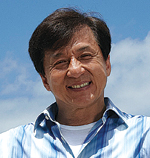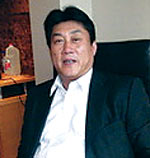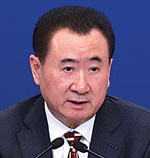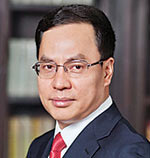INDIAN ARMED FORCES CHIEFS ON OUR RELENTLESS AND FOCUSED PUBLISHING EFFORTS

The insightful articles, inspiring narrations and analytical perspectives presented by the Editorial Team, establish an alluring connect with the reader. My compliments and best wishes to SP Guide Publications.

"Over the past 60 years, the growth of SP Guide Publications has mirrored the rising stature of Indian Navy. Its well-researched and informative magazines on Defence and Aerospace sector have served to shape an educated opinion of our military personnel, policy makers and the public alike. I wish SP's Publication team continued success, fair winds and following seas in all future endeavour!"

Since, its inception in 1964, SP Guide Publications has consistently demonstrated commitment to high-quality journalism in the aerospace and defence sectors, earning a well-deserved reputation as Asia's largest media house in this domain. I wish SP Guide Publications continued success in its pursuit of excellence.
China Opens Up
Some reports estimate that in a decade, the number of private jets in China will treble

The fact that the Asian Business Aviation Conference and Exhibition (ABACE) is held in Shanghai, China, and not in any other country is indicative enough of China’s importance in this rapidly growing segment of the aviation industry. Presently, China’s private jet market is extremely small, if one compares with the US private jet industry, but it is the future Chinese market that airframers are betting on. There are a little over 400 private jets in China, Hong Kong and Taiwan and of these over 50 per cent are based in Hong Kong and Taiwan. This number is said to treble in a decade. China has just started opening up its skies. Like India, China’s economy is on the upswing and so is the number of high net-worth individuals (HNWIs). According to Wealth-X, a market intelligence firm, there are 507 HNWIs with wealth of over $500 million each.
The surge of HNWIs is directly linked to ultra-luxury purchases such as automobiles, aircraft, yachts and the like. Some reports estimate that in this decade, the number of private jets will treble, if the Chinese Government continues on its reform path. One distinct trend is that these HNWIs are eyeing large jets which can take them across continents. The average cost of large jets is about $30 million which according to Jason Liao, Chairman and Chief Executive of China Business Aviation Group, is three times more than the world’s average of about $10 million spent on a private jet. Indeed, this speaks volumes of the Chinese mindset that of mixing business with pleasure.
Estimates of Demand
Canada’s Bombardier and Embraer Executive Jets have forecast healthy growth of business jets in the next two decades. Bombardier has pegged the figures at 2,420 business jets from 2013 to 2032, including 1,000 by 2022. The Canadian company is expanding its presence, strengthening its after-market support network for operators of its business aircraft. It has entered into a service agreement with Beijing Airlines, one of mainland China’s top business aviation operators, to provide technical support for all Learjets, Challengers and Globals at its Beijing Capital International Airport facilities.
China’s uber rich
The number of Chinese high net worth individuals (HNWIs)—defined as individuals with at least 10 million RMB (approximately $1.6 million) in investable assets—grew to over seven lakh at the end of 2012, more than doubling since the end of 2008, and on pace to increase an additional 20 per cent in 2013, according to the China Private Wealth Report 2013.
As the ranks of China’s HNWIs have grown, investment behaviours continue to evolve. “Quality of life” and “children’s education” followed “wealth preservation” on the list of top wealth management objectives.
Jet-setters
Hong Kong media Moghul Run Run Shaw is largely considered to be the first private jet owner in China while Zhang Yue, founder and Chairman of the Broad Group is said to be the first mainland Chinese to own a plane. Currently Zhang is said to own three private jets and a helicopter.

Jackie Chan: The iconic movie actor Jackie Chan is not only one of the richest Chinese actors, but also a brand ambassador for Embraer’s executive jet – Legacy 650. Jackie Chan’s new aircraft is an Embraer Legacy 650 that is painted with a red-and-yellow dragon logo along with his distinctive personal logo on the tail. Chan said that he chose the $30 million Legacy 650 because of its large, quiet cabins and its sense of luxury. The magic of celebrity is already working for Embraer as the company has recently received 13 jet orders from Minsheng Financial Leasing, China’s leading executive jet leasing company.

Zhao Benshan: Another actor and comedian and an ardent private jet aficionado is Zhao Benshan. In 2009, the actor bought a Bombardier Challenger 850. The actor’s Benshan Media Group, according to media reports, is now contemplating of replacing the Challenger 850 with a newer Boeing or Gulfstream model.

Zhai Jiahua: For Zhai Jiahua, Chairman of China Stem Cell, owning a business jet is a must. “It’s quick enough to fly with commercial airlines, but I want to travel even faster,” said Zhai Jiahua. He bought his first jet in 2010, a Bombardier Learjet 60, in order to transport clients for medical treatment within China. A second aircraft, a Bombardier Global Express, was acquired soon after. During the March 2012 Asian Business Aviation Conference & Exhibition held in Shanghai, Zhai purchased his third business jet, a Bombardier Challenger 605.

Wang Jianlin: The richest man on mainland China, Wang Jianlin, owns 75 department stores, 85 shopping plazas and 51 five-star hotels. After buying US movie chain AMC in 2012, Wang listed it on the New York Stock Exchange in December. He flew in celebrities Leonardo DiCaprio and John Travolta to help launch an $8 billion mini-Hollywood in the coastal city of Qingdao in September 2013.
Wang himself already has the lifestyle to play the part of global executive, with trips to Paris to buy Lanvin suits, a 33-metre Sunseeker yacht docked in Shanghai and a private jet. “I was one of the first in China to buy one,” he volunteers. He bought Sunseeker, the British mega yacht developer that had featured in the movies of James Bond worth $1.6 billion.

Li Hejun: The CEO of solar panel producer Hanergy, Li Hejun debuted on the Forbes China Rich List 2013 as China’s fourth-richest billionaire with an estimated fortune of 66.5 billion yuan ($10.9 billion). The 47-yearold Li, who is of Hakka descent and hails from a farming family in Guangdong province, made it to the list as the only renewable energy entrepreneur. He owns two top-end G550 private jets.
Business aircraft operators in China also have access to Bombardier-authorised service facilities at Metrojet in Hong Kong; Shanghai Hawker Pacific Business Aircraft Service in Shanghai; Execujet Haite Aviation Services China in Tianjin and Staeco in Jinan as well as the aircraft manufacturer’s AOG mobile response team. In addition, Bombardier has regional support offices in Shanghai and Hong Kong and spare parts depots in Beijing and Hong Kong. To date, there are 99 Bombardier business aircraft based in greater China.
Embraer footprint
The Brazilian aerospace major, Embraer is also enlarging its footprint in China and it has no less than film star Jackie Chan as its brand ambassador. It has taken a lead by manufacturing the Legacy 650 at the manufacturing plant in Harbin. It is a joint venture with Aviation Industry Corporation of China (AVIC). Embraer plans to build on the success of this joint venture. Embraer has forecast 805 executive jets over the next decade with large-cabin business jet accounting for 51 per cent of the demand which is about 78 per cent of the total value of deliveries.
Since 2004, when its first executive jet was delivered to this region, Embraer has booked orders for 38 executive jets in China, including five options. Leveraging its commercial jets service network and facilities, Embraer has several authorised service centres for executive jet customers in the Greater China region, offering tailor-made efficient service and support.
Cessna’s Focus in China
Cessna Aircraft Company has also strengthened its presence in China. According to Mike Shih, Cessna’s Vice President, Strategy and Business Development, the Asian business aviation market in general and China in particular is to mature at quite a rapid pace. “We foresee China being one of the top 10 countries for business jet ownership globally by 2025, aided enormously by the ongoing liberalisation of the country’s airspace. We are delighted to see that the Chinese Government understands the economic importance of general aviation and is committed to supporting the industry. We at Cessna are equally eager to play our part in helping develop Chinese business aviation from infancy to maturity as quickly as possible.”
Shih continued: “We want to work with local partners to develop all aspects of general aviation in the region. Recently, Cessna signed strategic agreements with Aviation Industry Corporation of China (AVIC) and the Chengdu government to jointly establish a range of products and services for general and business aviation in China. The agreements pave the way for a range of light and mid-size business jets, utility single-engine turboprops and single-engine piston aircraft to be manufactured and certified in China.”
Gulfstream Beijing Enhances Commitment
US-based Gulfstream set up Gulfstream Beijing, a joint venture with two subsidiaries of Hainan Airlines Group, Hainan Aviation Technik (HNAT) and Deer Jet.
Deer Jet is China’s largest business jet charter operator, while HNAT offers aircraft maintenance, repair and overhaul (MRO) services. Gulfstream Beijing is located at Beijing Capital International Airport. The facility’s technical staff is composed of factory-trained Gulfstream and Deer Jet/HNAT employees. The service centre, which is equipped with extensive ground support equipment and tooling, has quick access to more than $56 million in parts and materials strategically positioned at warehouses in Beijing, Hong Kong and Singapore. Gulfstream Beijing serves Deer Jet’s Gulfstream fleet and other Gulfstream aircraft based in China or transient. Initial facility support is for the large-cabin G-550 and G-450, the company’s most popular aircraft in China. MRO capability is expected to extend to Gulfstream’s newest aircraft, the flagship G-650 and G-280 in the coming months.
Dassault Falcon Nurturing Chinese Market
Dassault Falcon has established a wholly-owned foreign entity to represent the Falcon brand in the growing Chinese market. The subsidiary, known as Dassault Falcon Business Services (Beijing) Co. Ltd is based in Beijing.“Firmly establishing Dassault’s presence in China today positions us to serve the needs of its growing business aviation sector with the highest level of support in the years to come,” said John Rosanvallon who is also President and CEO of Dassault Falcon. “Establishing this subsidiary is key to doing business in China and making sure Falcon customers have the best possible resources.”
Dassault Falcon sold its first new Falcon in China in 2006. In 2010, an international sales and marketing office was established in Beijing with another office in Shanghai opened in 2012. Together with an office in Hong Kong, Dassault Falcon’s presence in the country has steadily increased.
Infrastructure and Regulatory Issues
The aviation industry in China has been strapped by infrastructure and regulatory issues and it is only of late that the government is introducing major reforms. Lack of infrastructure has historically held back the growth of private flying in China. The Civil Aviation Administration of China announced last November that it would further simplify flight approval procedures. It also eased requirements for obtaining a private pilot’s licence, lowering the fitness criteria which were previously the same as for a commercial pilot’s licence. In 2010, the State Council and the Central Military Commission eased guidelines on low-altitude flight and there are moves to open up airspace for flights below 4,000 metres, which could be a big boost to private flying.
China will need to create much more infrastructure to match the growth rate in the aviation industry. It now has about 183 civil airports. More than 100 cities across China are building or planning to build general aviation industrial parks. Taxation is a dampener in China and jets face a heavy 17 per cent value-added tax and five per cent tariffs when they are imported into China.
During an interview with CBN Weekly in October 2013, Edward Bolen, President and CEO of the US National Business Aviation Association, warned that the regulatory environment threatens the growth of the industry. “For any industry, the higher the taxes, the slower would be the growth rate,” he said, noting that he is hoping to see a friendlier environment for the industry in China in the future.





